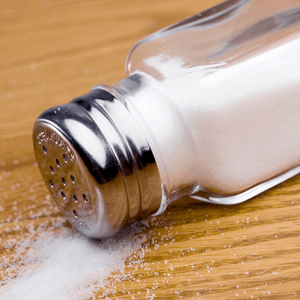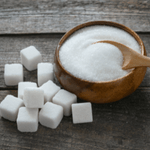Before you roll your eyes, we know that being told to eat well and exercise sounds like every doctor’s go-to and yes, you’ve heard it all before. However, what you may not know is that there are just a few simple measures you can take that will be transformative for your energy levels and overall well-being. Let’s break it down for you.
Salt!

If you tend to eat a lot of takeaways or restaurant food, the likelihood is that you are far exceeding the amount of salt your body needs. And if you’re the kind of person who adds salt to food before you taste it, you’re not doing yourself any favours.
Too much salt can make you feel tired because it causes water to be retained where it should not be, such as in your bloodstream and tissues of your lungs, leading to a weighty, tired and weak feeling in your body.
In an ideal world, you should aim to keep your daily salt intake under 6 grams. For reference, that’s about a teaspoon. Focusing on home cooking and watching your salt intake will positively impact your energy levels.
Sugar!

Sugar is also inflammatory, causing systemic inflammation all over the body. You should see sugar more as a sedative than a pick-me-up, because the effects after that little sugar high we get are significant.
Eating too much sugar inhibits the production of a chemical called Orexin. Orexin is a chemical in the brain that stimulates the feeling of being awake. In other words, the more sugar you eat, the more tired you will feel. Kick the sugar habit and watch your energy grow.
Avoid foods you’re intolerant to
If you know you’re intolerant to foods such as dairy or gluten, please leave them alone. Continuing to eat foods to which you’re intolerant causes inflammation and fatigue.
Lactose intolerance, for example, is directly linked to feeling tired and a low mood. Being intolerant to something like lactose can cause seeping of lactose into the blood, where it certainly doesn’t belong. If you are not sure if you have a food intolerance, try cutting it out of your diet for two weeks and see if you feel any different.
Sometimes, you might have more than one intolerance. Common food intolerances include lactose (found in dairy), gluten, and fructose (found in fruit sugars). An elimination diet will help you nail the culprit!
Exercise
Yes, yes, we know. But the issue is often that when a doctor says “exercise”, we think they mean much more than is really required.
Do you know what level of exercise is medically recommended? Simply a 30-minute daily walk and a few sessions of resistance training a week are more than enough to get the exercise you need to boost your energy levels, improve your fitness, increase oxygen flow throughout the body, and regulate the right hormones that make you feel good and positive.
Don’t complicate it – start with the walk and see how, in a few weeks, you’ll feel like a new person.
Physiological causes
There are, of course, many physiological and medical causes of tiredness, and if you find that lifestyle is not having an impact, you will need further investigations and medical support.
Our fatigue health check does just that and will look at common causes such as thyroid issues, diabetes, vitamin deficiencies, anaemia and more.
Call or email us today to book.
















